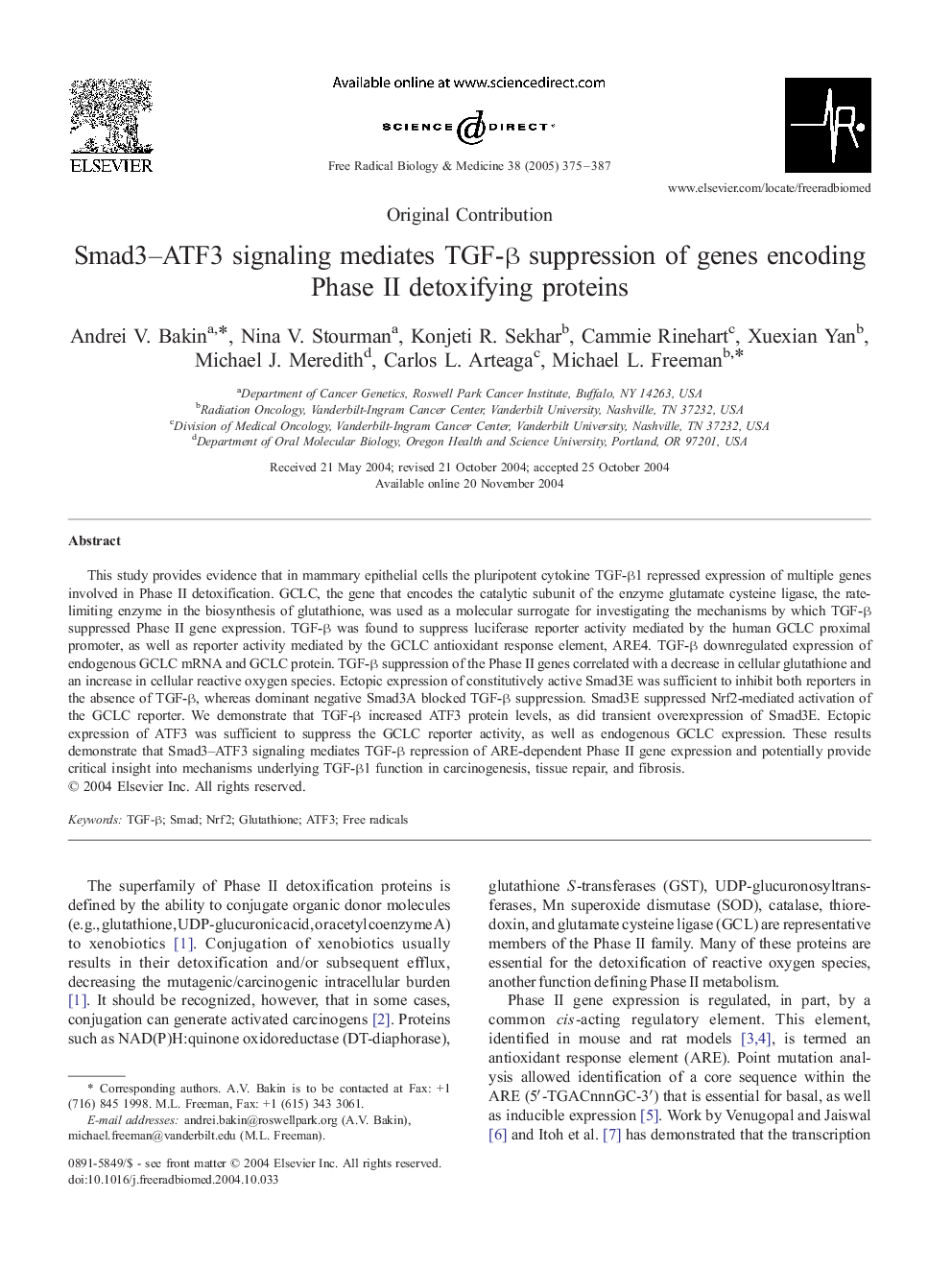| Article ID | Journal | Published Year | Pages | File Type |
|---|---|---|---|---|
| 10738924 | Free Radical Biology and Medicine | 2005 | 13 Pages |
Abstract
This study provides evidence that in mammary epithelial cells the pluripotent cytokine TGF-β1 repressed expression of multiple genes involved in Phase II detoxification. GCLC, the gene that encodes the catalytic subunit of the enzyme glutamate cysteine ligase, the rate-limiting enzyme in the biosynthesis of glutathione, was used as a molecular surrogate for investigating the mechanisms by which TGF-β suppressed Phase II gene expression. TGF-β was found to suppress luciferase reporter activity mediated by the human GCLC proximal promoter, as well as reporter activity mediated by the GCLC antioxidant response element, ARE4. TGF-β downregulated expression of endogenous GCLC mRNA and GCLC protein. TGF-β suppression of the Phase II genes correlated with a decrease in cellular glutathione and an increase in cellular reactive oxygen species. Ectopic expression of constitutively active Smad3E was sufficient to inhibit both reporters in the absence of TGF-β, whereas dominant negative Smad3A blocked TGF-β suppression. Smad3E suppressed Nrf2-mediated activation of the GCLC reporter. We demonstrate that TGF-β increased ATF3 protein levels, as did transient overexpression of Smad3E. Ectopic expression of ATF3 was sufficient to suppress the GCLC reporter activity, as well as endogenous GCLC expression. These results demonstrate that Smad3-ATF3 signaling mediates TGF-β repression of ARE-dependent Phase II gene expression and potentially provide critical insight into mechanisms underlying TGF-β1 function in carcinogenesis, tissue repair, and fibrosis.
Related Topics
Life Sciences
Biochemistry, Genetics and Molecular Biology
Ageing
Authors
Andrei V. Bakin, Nina V. Stourman, Konjeti R. Sekhar, Cammie Rinehart, Xuexian Yan, Michael J. Meredith, Carlos L. Arteaga, Michael L. Freeman,
